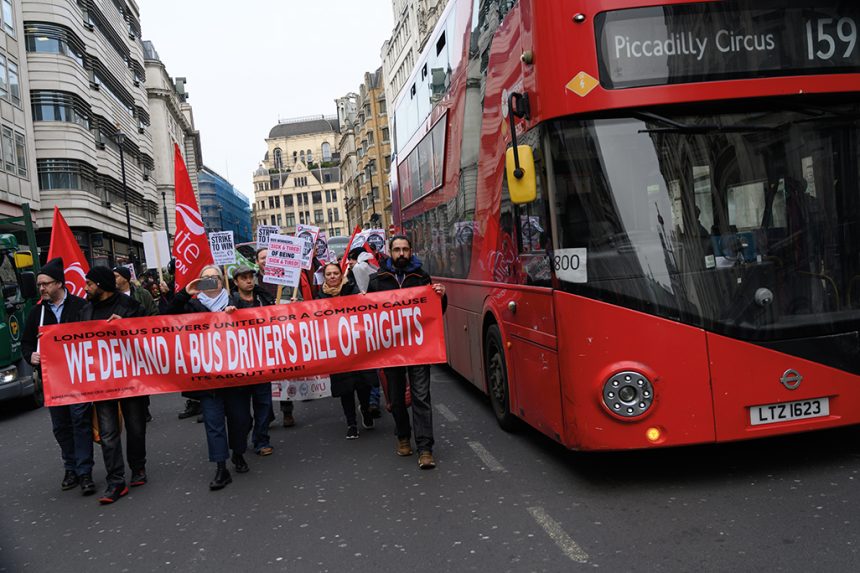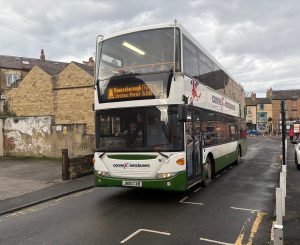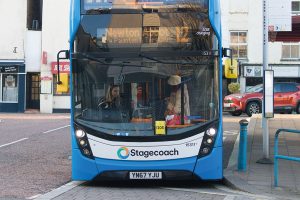Last month, routeone reader Stephen Wigglesworth noted that the Bus Services (No.2) Bill, which recently went through its second reading in the House of Commons, is a welcome step to addressing passenger safety — but carries risks if it is not matched by operational support.
The risk is of additional pressure on drivers. Stephen’s concerns are a reaction to the proposal of mandatory training to help drivers manage antisocial behaviour and support vulnerable passengers. While positive steps, Stephen argues that it presents another top-down burden on drivers, at a time when systemic issues are not being addressed.
The issue of training and driver wellbeing is one which affects coach and bus operators of all sizes. One question is whether policymakers understand the daily pressures and complexity of a driver’s job, which can be physically, mentally and emotionally demanding.
Stephen’s priorities for the bus industry include a reduction in maximum driving hours to reflect mental strain, a guarantee of proper breaks and facilities for welfare, the reintroduction of conductors on busy routes to share responsibility, working vehicle security through mandatory checks, and visible and co-ordinated enforcement.
An issue for operators
Consultant and long-time industry member John Bickerton was one of the first to express concern about Stephen’s comments — not as a reflection of the wider industry, but rather as an organisation’s approach.
In that respect, additional pressure from training requirements may not be something fully in the hands of policymakers but forms a necessary balance that must be struck in a company between the burden of responsibility that drivers face, and their wellbeing. Part of that could be down to how a company makes each individual feel valued.
“I don’t recognise the idea of lots of disciplines and finger pointing for any minor transgression,” John explains. “Mistakes happen, and the good operators have a range of tools to deal with that. I don’t think it’s for the Bus Services Bill to mandate that though — on a purely commercial basis, I know operators that can pay below the market, and still attract a good pool of drivers who value being treated as an individual rather than a number. That’s hard to do at scale, but not impossible, and in a short labour market those who can will vote with their feet — and not always for the highest hourly rate.”
While critical of the suggestions on drivers’ hours, Connexions Buses Managing Director Craig Temple agrees that there are good points being made in Stephen’s letter. It is not just policymakers that misunderstand much of the burden that drivers face — passengers, other road users and the public remain largely ignorant of those responsibilities.
That the training being mandated through the Bus Services (No.2) Bill is coming under scrutiny comes as no surprise, though. “Any mandatory training is seen as a bad thing by drivers, even to the extent that we used to have social gatherings with work — but nobody wants to do that anymore,” Craig says. “Drivers want to do the work and go home. There’s been a real struggle to get them to commit to Driver CPC training.”
Another worry with mandatory training is that it cannot be tailored to an individual’s exact needs. Craig points to differences in passenger attitudes in Harrogate, York and Leeds. In the former, passengers have little patience for delays, and fail to understand the knock-on effects on services. In York or Leeds, the opposite is true — when a bus is delayed, complaints are rare.
“So a broad-brush-suit-all approach wouldn’t work,” Craig adds. “Even in our geography, each little area has a different behavioural pattern to everywhere else. That needs to be thought about. The biggest issue I see is that anything additional being requested of drivers that isn’t immediately seen as beneficial to them will be viewed as a bad thing.”
Valuing a workforce
Making drivers feel valued, meanwhile, is a difficult task, and one made more difficult by a sense that, since COVID-19, many drivers are more insular than ever. “Many don’t see the effects on their colleagues of certain behaviours, such as late running or absenteeism,” Craig explains. “We have those who are good and those less so; but the fact that so many drivers seem to only be interested in themselves can be a hard thing to get over.”
To work better with its workforce of 50 drivers and ancillary staff, Connexions offers a variety of shift patterns outside of school times, and tailors holidays and workdays to accommodate staff with children. “That is something we have always done and that is quite different to some of the bigger companies. It’s easier for us with our workforce; we know them better, and we know what we can ask of some. It’s important to show flexibility and find a way of working best with what you have.”
Leveraging that closeness to drivers is essential for smaller coach and bus operators. Mark Drury, Managing Director at Passenger Plus, argues that larger operators have the advantage when it comes to driver wellbeing; most have well-developed HR structures in place to safeguard staff. Conversely, smaller businesses are more conscious of the costs involved. Being approachable, ensuring lines of communication exist for drivers and assisting when needed has helped Passenger Plus maintain strong retention among staff.
“We also have a member of staff with a background in social care, and specifically joined RHA Coaches for its work around mental health,” Mark adds. “We regularly share information about our online HR system through its driver app, send out details on the RHA Benevolent Fund and its mental health line, and have done a lot of work around the latter to make sure someone can talk if they are struggling. Having anonymous help is very important.”






























